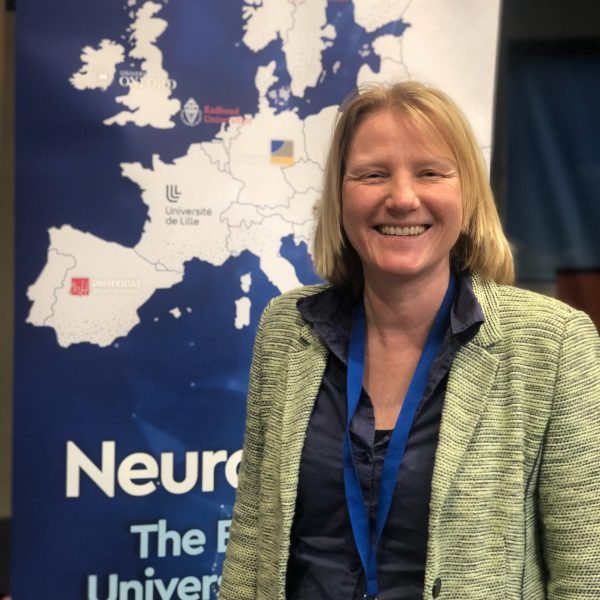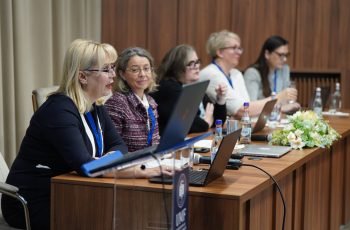On International Women’s Day, NeurotechEU hosted the third ‘’Women of NeurotechEU’’ event. This event was an opportunity to celebrate the achievements of all women and women in STEM disciplines. It was a way to empower and support women in these fields. During this event, two students of Radboud University interviewed multiple women of NeurotechEU.

Science is a fun insecure path. That's why I would encourage all students to go into science
Dr. Prof. Corette Wierenga
Dr. Corette Wierenga is a Professor of Neurophysiology at Radboud University, interested in the role of inhibitory synapses at the molecular, cellular and network level. She studies molecular mechanisms underlying the formation and plasticity of inhibitory synapses. In addition, Corette Wierenga is examining the changes in inhibitory synapses in the early stages of Alzheimer’s disease.
What are some of the key challenges women face in science today? And what steps do you think should be taken to address them?
‘One of the challenges that I see when I talk to female scientists or female students is that they are scared to take the jump. It’s a bit of an insecure path, a career in science. But if you think about it, life is an insecure path anyway. I would say science is a fun insecure path. That’s why I would encourage all female students to go into science.’
What would be ways to encourage girls and women to go into science?
‘Of course, you cannot tell anyone what to do, but what helped me is to be really interested in it and curious about figuring things out. It’ll also help to realise that all these big-shot scientists are just people. What makes science fun is that many different types of people, are all interested in the same thing. You meet people from all over the world who are interested in the same super-specific scientific topic and you’ll have really exciting conversations about it. It is really valuable to meet other people with the same drive as you and hear different opinions and see different points of view.’
How do you think scientific research can be used to address important social and environmental issues? And what role do women play in this?
‘Science, in general, is good at coming up with solutions that other people don’t think of. Science is a curiosity-driven process, you just want to figure out how something works. In this way, you can also come up with solutions. For example, I’m a neuroscientist. I can discuss all kinds of treatments, but if we first figure out what is causing the disease, maybe that gives us a much better handle on trying to figure out how to approach it. The role of women is not different from the role of men. It’s just to do great science, come up with smart solutions, and tell the world about it.’
Sometimes girls and women are pulled back because they’re held way more accountable when something bad happens. What would be your advice?
‘I think you can only do your best. You should do the very best you can; if you make a mistake, you learn from it and do it differently next time. When you are doing the very best you can, you are giving yourself the confidence to be who you are. Don’t let others define who you are and focus on the things you can do and learn.’
By: Rosie Zheng and Thirza Dado




